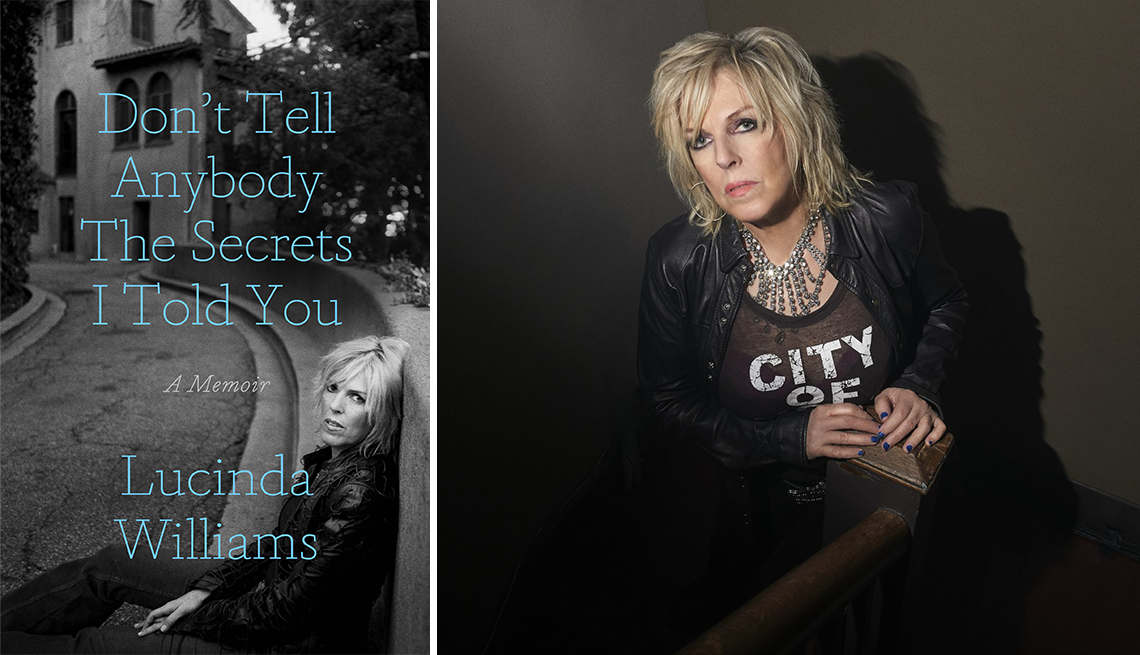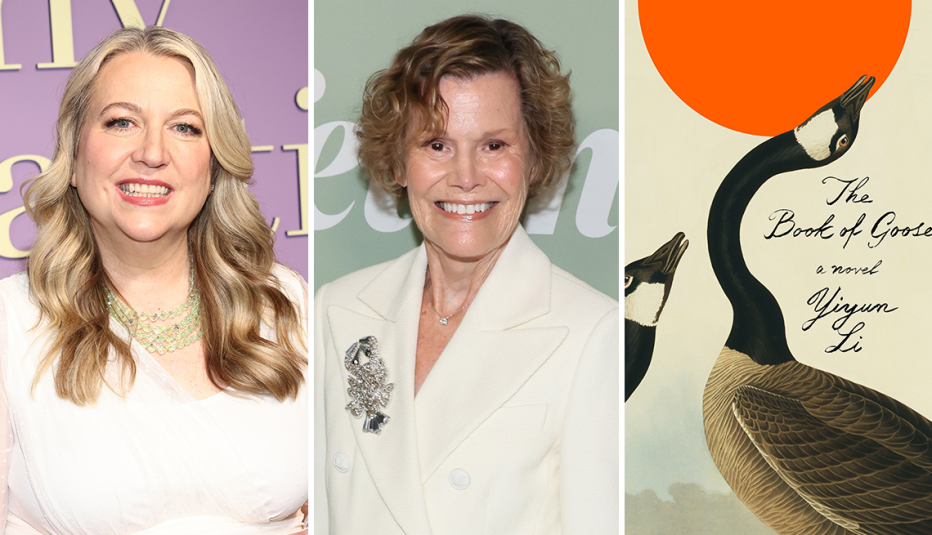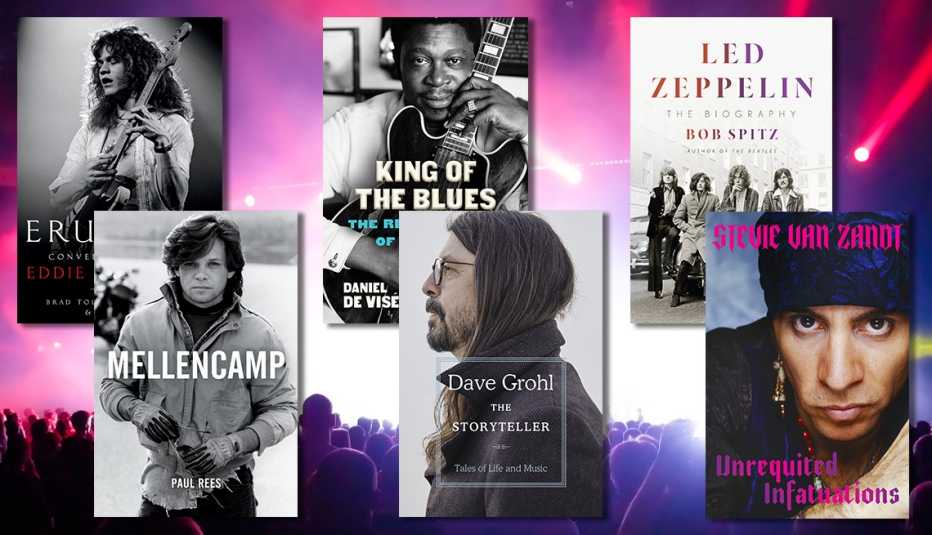AARP Hearing Center
Fans of Lucinda Williams tend to feel like they really know her, in part because her songs seem so autobiographical. They speak of, among other things, an unsettled childhood (“Car Wheels on a Gravel Road,” from her breakthrough 1998 album of the same name), heartache and loss (“Pineola”) and erotic passion (“Essence”) — all voiced in her distinctive raspy, bluesy Southern twang.
Williams, 70, has written a memoir, Don’t Tell Anybody the Secrets I Told You (April 25), in which she offers stories from her life and the inspiration behind those evocative songs. There’s pain there: She was raised with two younger siblings by a musically gifted but volatile mother who struggled with mental illness and a poet father who moved his family to 12 different towns by the time Williams turned 18; she struggled to kick off her music career; and, for many years, she led a roller-coaster romantic life (she always fell for “poet-on-a-motorcycle-type guys,” as she puts it).
We talked to Williams about her book, career and upcoming album, Stories From a Rock n Roll Heart, set for a June 30 release and produced with her husband and manager, Tom Overby. The album — which includes vocals from guest artists such as Bruce Springsteen and Margo Price — was created in the aftermath of her 2020 stroke, which required extensive rehab.
The lingering pain and stiffness in her hand continues to make it too difficult for her to play the guitar. But “the recovery is going well,” she said by phone from her home in Nashville, Tennessee, where she was getting ready to set off on her music and book tours. “I'm pretty resilient.”
Here’s more from our talk with Williams.
Was it hard to go back to your past — including your childhood, some of which was tough — to write the book?
No, that wasn’t hard for me because that’s how I am anyway. When you listen to my songs — some of them are kind of gritty and they’re honest. So I’m used to that part. But writing it was the hardest thing I’ve ever had to do in my entire life. I’ve never written a book before. Initially, it was my husband, Tom [Overby], just asking me questions, and I started talking. Once you do that, it’s kind of like lifting the lid off.
What do you want people to understand about your life after reading the book?
That everything’s not dark all the time. A lot of my songs are dark and sad. I have songs about suicide and people dying and a lot of songs about loss, but I feel like there’s some kind of redemption at the end. And even though I was writing about some difficult things, and you could say my family was dysfunctional and screwed up, at the end of the day, I hope you could still tell that there was love there.







































































